Overview
I am attempting to write an IAsyncEnumerable<T> wrapper around an IObserver<T> interface. At first I used a BufferBlock<T> as the backing data store, but I found out through performance testing and research that it is actually a pretty slow type, so I decided to give the System.Threading.Channels.Channel type a go. I had a similar problem with my BufferBlock implementation as this one but this time I'm not sure how to resolve it.
Problem
My GetAsyncEnumerator() loop gets blocked by the await _channel.Reader.WaitToRead(token) call if my IObserver<T>.OnNext() method hasn't written to the _channel yet. What is the correct way to wait for a value to be available to yield in this context without blocking program execution?
Implementation
public sealed class ObserverAsyncEnumerableWrapper<T> : IAsyncEnumerable<T>,
IObserver<T>, IDisposable
{
private readonly IDisposable _unsubscriber;
private readonly Channel<T> _channel = Channel.CreateUnbounded<T>();
private bool _producerComplete;
public ObserverAsyncEnumerableWrapper(IObservable<T> provider)
{
_unsubscriber = provider.Subscribe(this);
}
public async void OnNext(T value)
{
Log.Logger.Verbose("Adding value to Channel.");
await _channel.Writer.WriteAsync(value);
}
public void OnError(Exception error)
{
_channel.Writer.Complete(error);
}
public void OnCompleted()
{
_producerComplete = true;
}
public async IAsyncEnumerator<T> GetAsyncEnumerator(
[EnumeratorCancellation] CancellationToken token = new CancellationToken())
{
Log.Logger.Verbose("Starting async iteration...");
while (await _channel.Reader.WaitToReadAsync(token) || !_producerComplete)
{
Log.Logger.Verbose("Reading...");
while (_channel.Reader.TryRead(out var item))
{
Log.Logger.Verbose("Yielding item.");
yield return item;
}
Log.Logger.Verbose("Awaiting more items.");
}
Log.Logger.Verbose("Iteration Complete.");
_channel.Writer.Complete();
}
public void Dispose()
{
_channel.Writer.Complete();
_unsubscriber?.Dispose();
}
}
Additional Context
It shouldn't matter, but at runtime the IObservable<T> instance passed into the constructor is a CimAsyncResult returned from async calls made to the Microsoft.Management.Infrastructure apis. Those make use of the Observer design pattern which I'm trying to wrap with the fancy new async enumeration pattern.
Edit
Updated with logging to the debugger output and made my OnNext() method async/await as one commenter suggested. You can see it never enters the while() loop.
